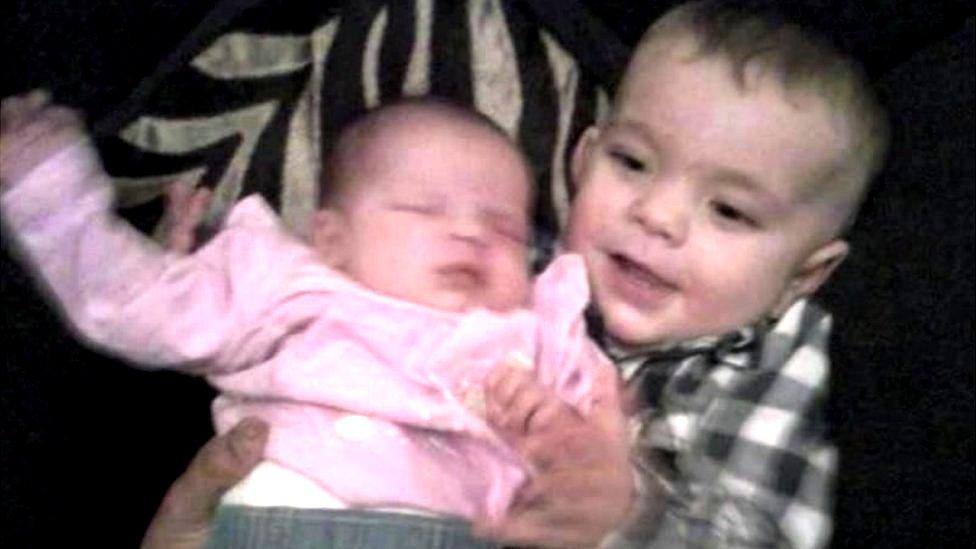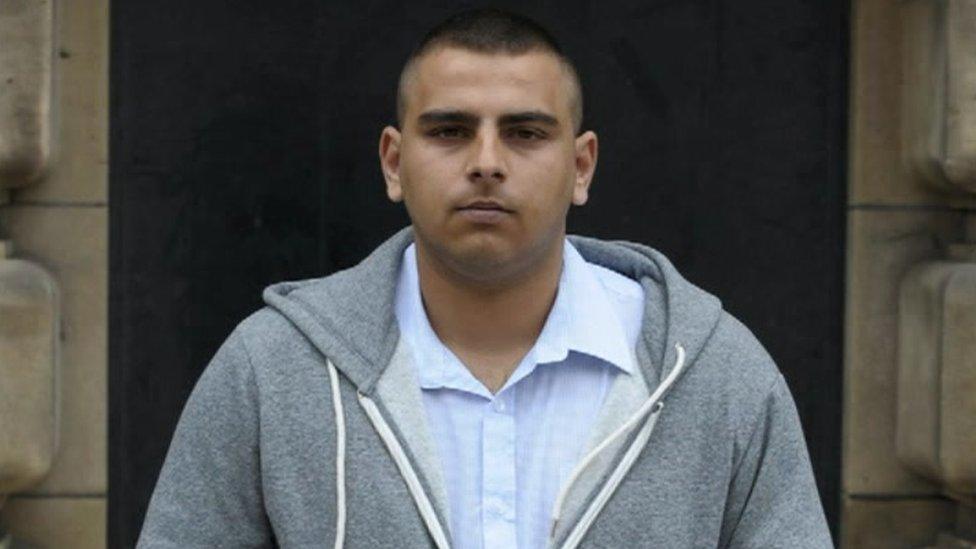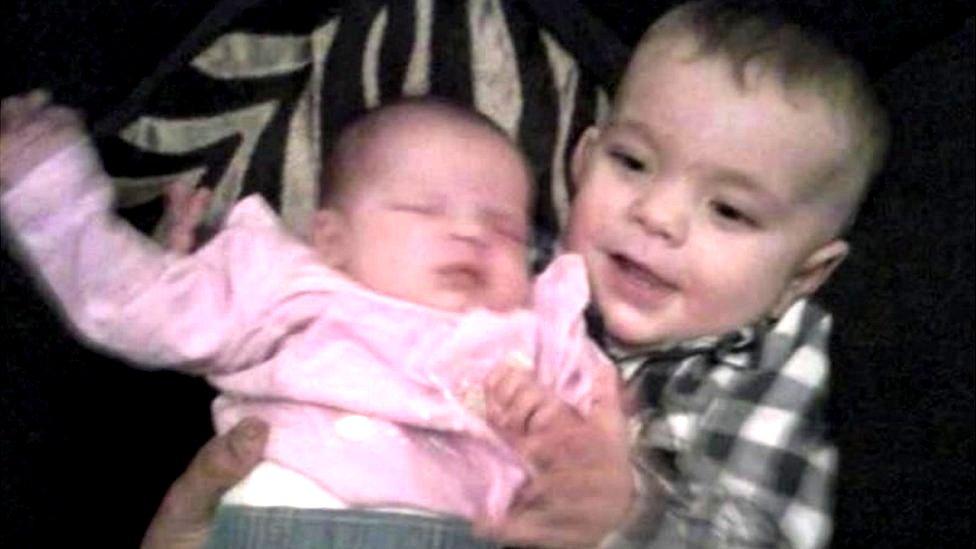Jordan Monaghan trial: Genetic condition 'did not cause children's deaths'
- Published

The jury has been told Jordan Monaghan "unlawfully and deliberately" obstructed Ruby and Logan's breathing
The sudden deaths of baby and toddler who were allegedly murdered by their father could not be explained by genetic conditions, a court has heard.
Jordan Monaghan, 30, is accused of smothering his 24-day-old daughter Ruby in January 2013 before killing his 21-month-old son Logan eight months later.
He is also accused of murdering his new partner, Evie Adams, 23, in October 2019 by poisoning her.
Mr Monaghan, of Blackburn, denies three counts of murder.
Preston Crown Court heard Ruby and Logan had both suffered a "collapse" but recovered prior to a final fatal event.
Jurors were told both children had been seen by medics in the days and months before their deaths but other than usual childhood illnesses, no serious medical condition was found.
Professor Ruth Newbury-Ecob, a consultant in clinical genetics and inherited cardiac conditions, said she could not find any underlying genetic conditions to explain either of their deaths.
The jury heard in Logan's case there was also a "molecular autopsy" of genetic testing carried out looking for genes sometimes linked to unexplained, sudden deaths.
Nothing was found likely to support a diagnosis of a cardiac genetic disorder, Prof Newbury-Ecob said.

Jordan Monaghan denies three counts of murder, two counts of attempted murder and two counts of cruelty to a child
The court previously heard Laura Gray, the children's mother, told police Ruby was "absolutely fine" just hours before her death after she was left alone with the defendant on New Year's Day 2013.
Eight months later, on August 17 2013, Miss Gray found Logan dead in his pushchair after his father had taken him out.
Mr Monaghan, a digger driver with a gambling problem and debts, had rowed with Miss Gray, who had said she was leaving him, the court heard.
The jury has heard of reported instances of "cot death" in both parents' families but these were "unverified" instances and two or more generations back.
Prof Newbury-Ecob said infant deaths were more common in the past and the more distant in past generations when it occurred, the less important it was regarded.
Ben Myers QC, defending, asked if it was possible a "silent" genetic condition could be carried across generations but only materialise two or three generations down the line.
He added: "For example, in this case, the fact that there might be conditions historically and then not repeated for a generation or two, doesn't rule out the possibility of a condition emerging at the point of the children we are looking at?"
Prof Newbury-Ecob replied: "Yes."
Mr Monaghan, of Belgrave Close, also denies two counts of attempted murder and two counts of cruelty to a third child, who cannot be identified, all between 1 January 2013 and 24 October 2019.
The trial continues.

Why not follow BBC North West on Facebook, external, Twitter, external and Instagram, external? You can also send story ideas to northwest.newsonline@bbc.co.uk
- Published18 October 2021

- Published14 October 2021

- Published13 October 2021

- Published12 October 2021
